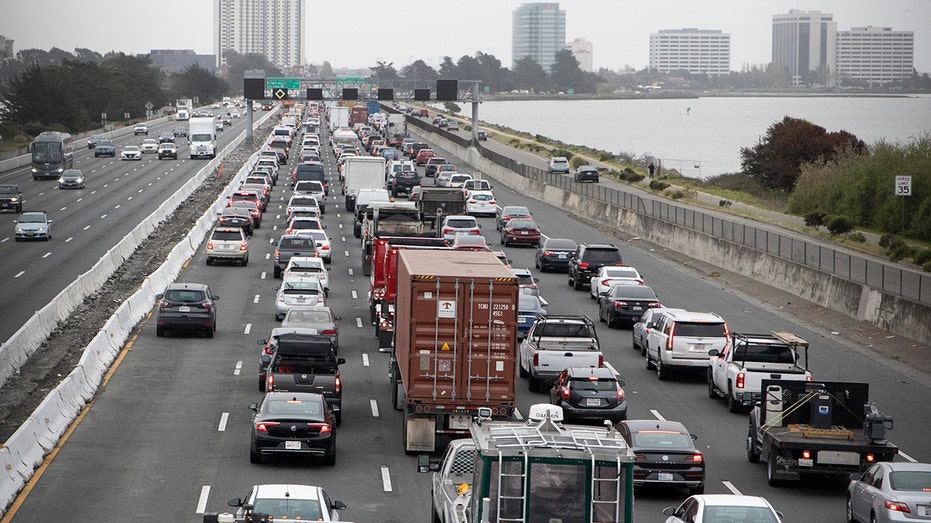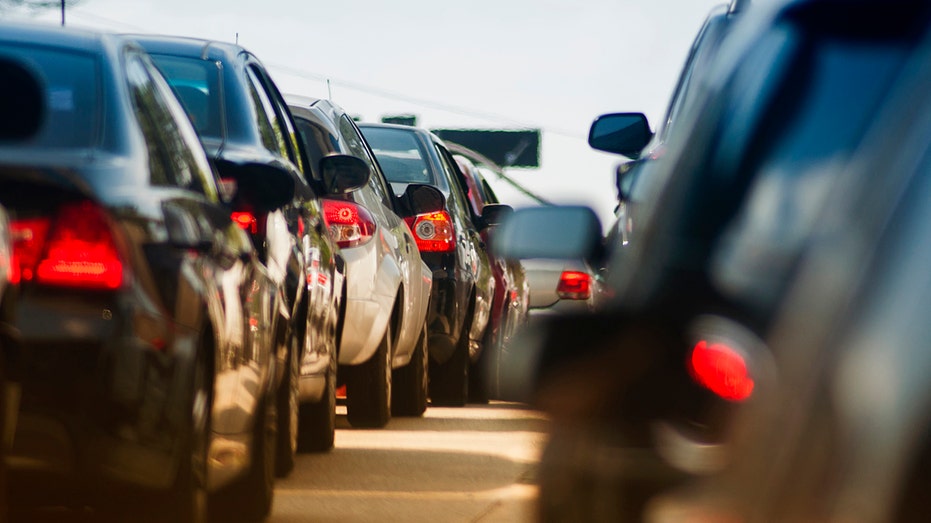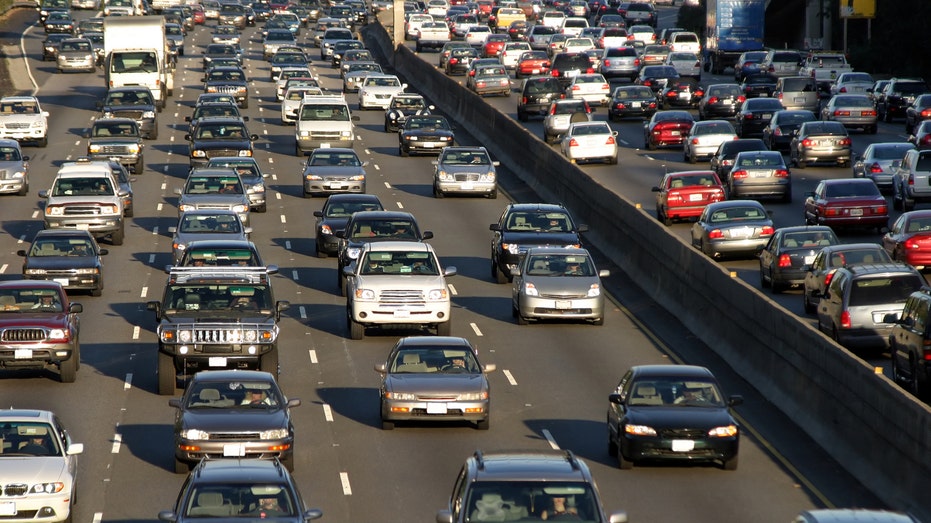Infrastructure bill mandates that new cars monitor drivers for signs of impairment
The systems under consideration include monitoring a driver's breath, sweat, or driving activity
Joe Lieberman on divide in Congress, infrastructure bill
Former Connecticut Sen. Joe Lieberman discusses partisan fighting in Congress, Democrats' spending packages, growing U.S. debt and his book 'The Centrist Solution.'
The $1.2 trillion infrastructure passed by Congress last week is headed to President Joe Biden's desk for signing, and included in the 2,700-page legislation is a mandate that all new cars will soon need to be outfitted with monitors aimed at detecting whether a driver is impaired and to shut down when unusual activity is flagged.

Traffic in Berkely, California. (Jessica Christian/The San Francisco Chronicle via Getty Image / Getty Images)
According to the Associated Press, the new regulation requires that "monitoring systems to stop intoxicated drivers would roll out in all new vehicles as early as 2026, after the Transportation Department assesses the best form of technology to install in millions of vehicles and automakers are given time to comply."
Some advocacy groups hail the mandate as a huge victory. Mothers Against Drunk Driving (MADD) pushed for the new federal rule, and MADD President Alex Otte told FOX 5 that it is a step toward the organization's goal of seeing "no more victims" from drunk driving.

standing still traffic (iStock)
MEET THE 13 REPUBLICANS WHO VOTED FOR THE INFRASTRUCTURE BILL
Systems under consideration for the requirement include technology for monitoring a driver's breath, eye movements, or sweat, and if unusual activity is detected, the car "will either not start, not move, or will pull itself over," according Otte. She told the AP that "it will virtually eliminate the No. 1 killer on America's roads."
But some experts are pointing to privacy concerns over having drivers monitored by their own cars – and who would have access to that information.

Traffic jam in Los Angeles (iStock / iStock)
Lee Tien, a senior staff attorney for digital rights group the Electronic Frontier Foundation, told MarketWatch, "You want to be really careful that any system of technology that is basically driving surveillance doesn’t go beyond what it needs to be."
GET FOX BUSINESS ON THE GO BY CLICKING HERE
"Mission creep is a big issue," Tien continued. "There’s so much incentive, between the public and the private sector, to say, ‘Well, we could force people to collect this information,’ and, ‘We would really like it if you did. We could use the information.’"
Tien added, "Companies and the government sort of have aligned interests, and they’re kind of not aligned with consumers."





















